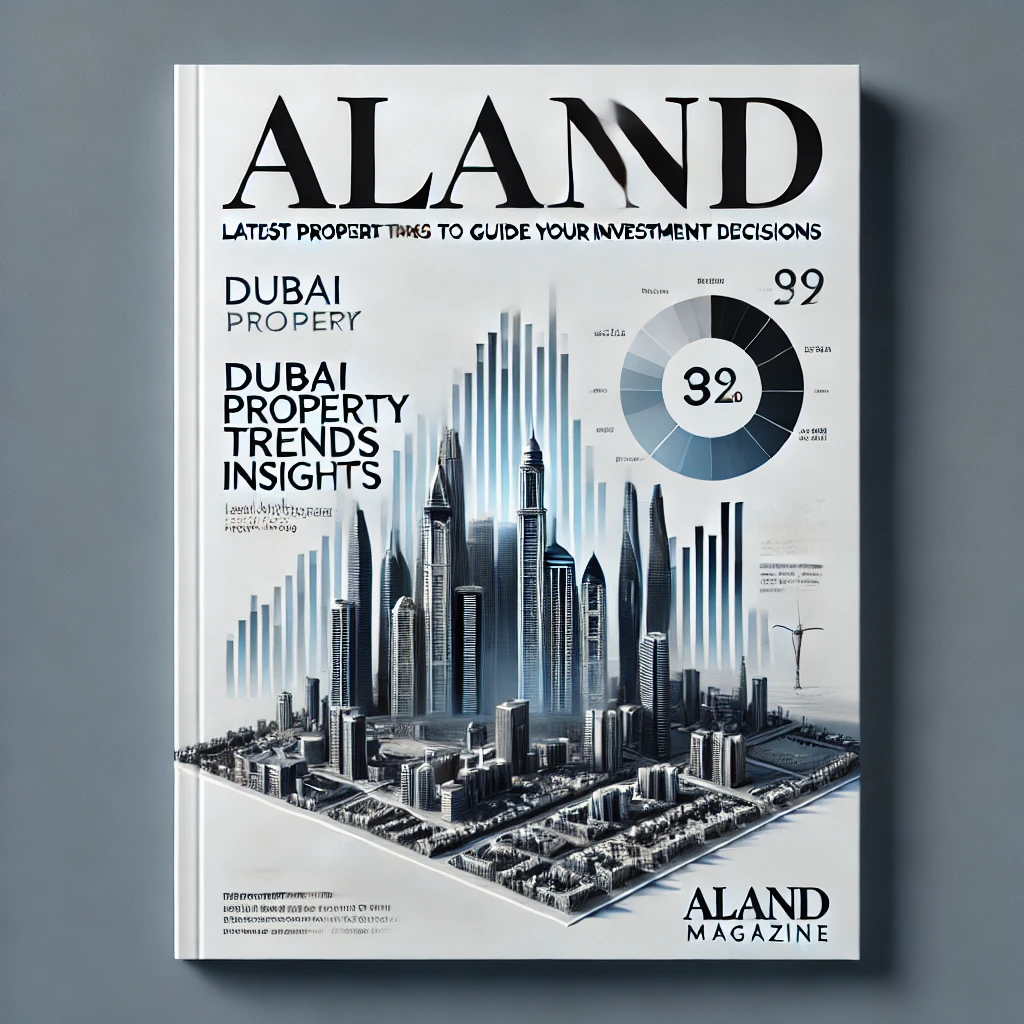Dubai Property Trends Insights: Latest Data to Guide Your Investment Decisions
- Published Date: 18th Mar, 2025
-
5★ ★ ★ ★ ★(165)

Dubai Property Trends Insights: Latest Data to Guide Your Investment Decisions
As Dubai continues to evolve into one of the world’s leading investment destinations, understanding the current property trends is crucial for making informed, high-return decisions. The city’s real estate market has shown remarkable resilience, even amidst global uncertainties, and offers a wealth of opportunities for savvy investors. Here’s an in-depth look at the latest data, trends, and investment insights that should guide your next move in Dubai’s property market.
1. Strong Demand for Luxury and High-End Properties
Dubai’s luxury property market continues to thrive, with high-net-worth individuals (HNWIs) driving the demand for prime real estate. Areas like Palm Jumeirah, Downtown Dubai, and Dubai Hills Estate remain highly sought after for their exclusivity and prestige. In 2025, these neighborhoods are expected to see even greater capital appreciation, driven by sustained foreign investment, global wealth shifts, and the UAE’s favorable tax policies.
From an economic standpoint, Dubai's continued growth as a global business and tourism hub ensures that demand for luxury real estate will remain high. Additionally, global events such as Expo 2020 have elevated Dubai’s international profile, further bolstering interest in top-tier properties.
2. Growth of Smart Homes and Sustainable Developments
As global investors become more eco-conscious, the demand for sustainable and energy-efficient properties has surged. Dubai is no exception, with a rising number of developers integrating green building practices and smart home technologies into new projects. These innovations not only help reduce long-term operating costs for homeowners but also appeal to the growing segment of investors seeking sustainability and modern living.
The Dubai Sustainable City and developments in Al Barari reflect this shift toward eco-friendly, tech-enabled living. Such properties are expected to offer strong long-term returns, as sustainability continues to be a key decision-making factor for both end-users and investors.
3. Foreign Investment and Visa Initiatives Boosting Demand
The UAE government’s introduction of long-term visas, such as the Golden Visa, is having a direct and positive impact on the real estate market. Foreign investors, particularly from countries like India, Russia, and China, are increasingly attracted to Dubai’s real estate market due to the visa’s benefits, including long-term residency and tax advantages.
This has opened up the property market to a broader global audience, ensuring consistent demand for both residential and commercial properties. In addition, as Dubai becomes a magnet for entrepreneurs and investors seeking a secure and stable environment, the demand for properties in central business districts like Business Bay and DIFC is expected to increase steadily.
4. Tokenization of Real Estate: A New Investment Frontier
The digital revolution is reshaping the real estate market in Dubai, particularly with the rise of blockchain technology and tokenization. By enabling fractional ownership, tokenization allows smaller investors to participate in high-value properties that would otherwise be out of their reach. This not only democratizes the market but also increases liquidity, making it easier to buy and sell real estate assets.
Dubai, with its forward-thinking regulatory environment, is poised to become a leader in tokenized real estate investments. Blockchain technology can streamline property transactions, improve transparency, and reduce transaction costs, all of which make Dubai’s real estate market more attractive to both institutional and retail investors.
5. Rental Market: Short-Term vs. Long-Term Investments
The demand for short-term rental properties has been steadily rising, thanks to platforms like Airbnb and a steady influx of tourists and business travelers. Areas like Dubai Marina, Jumeirah Beach Residence (JBR), and Downtown Dubai remain hotspots for vacation rentals, offering higher yields compared to long-term leasing. This trend is expected to continue in 2025, with high demand for both short-term rental properties and serviced apartments.
On the other hand, long-term rental properties in suburban areas such as Jumeirah Village Circle (JVC) and Dubai Silicon Oasis offer more affordable entry points with stable rental yields. For investors looking for more secure, long-term cash flow, these areas remain highly attractive.
6. Continued Expansion of Infrastructure and Urban Development
Dubai’s infrastructure developments play a significant role in the growth of its real estate market. The construction of new metro lines, roads, and leisure facilities continues to open up new areas for development. Areas like Dubai South, which is home to the Expo 2020 site, are expected to see exponential growth in property values as the area continues to evolve into a commercial and residential hub.
As a visionary investor, it’s essential to keep an eye on these emerging areas, where early investment can yield significant returns in the coming years.
Practical Takeaways:
- Diversify Portfolio Across Property Types: Balancing luxury properties with smart homes and emerging developments like Dubai South offers a well-rounded investment strategy.
- Embrace Digital Transformation: Look into tokenized real estate platforms for greater liquidity and exposure to high-value properties with lower barriers to entry.
- Monitor Government Policies: Stay informed on changes to the Golden Visa program, real estate tax incentives, and other regulations to optimize investment opportunities.
For more in-depth analysis, visit ALand’s Blog, explore the latest updates on The ALand Times, and learn how cryptocurrency is reshaping markets at EE Gold.

